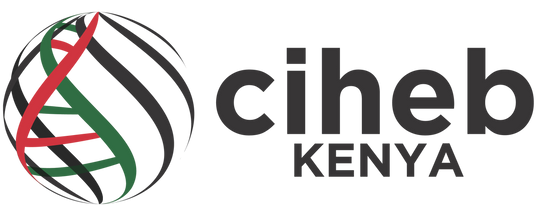Transforming HIV Prevention for Key Populations through Community-led, Family-inclusive, and Digitally-driven programming
Our HIV prevention for key population (KP) program is designed with and led by the KPs, built around the lived realities of female sex workers (FSWs), men who have sex with men (MSM), and people who inject drugs (PWID), with a special focus for young key populations (YKPs). The program is driven by peer leadership, strong partnerships, and digital innovation. It also embraces a whole-community approach, extending support to the children and families of KPs, who are often equally vulnerable but neglected in service delivery.
Peer-Led, Community-Based, and Multi-Stakeholder supported
Our services are delivered through peer leaders (trusted members of the KP community) who act as mobilizers, educators, and counselors. Their outreach work is reinforced by:
Coordinated collaboration with Ministries of Health at both the county and national levels,
Strategic partnerships with county administrative units and law enforcement to address stigma and violence,
Engagement of KP-led civil society organizations managing drop-in centers and safe spaces.
Typology-specific and family-inclusive combination prevention interventions aligned to aligned to risks and vulnerabilities to HIV
-
Female Sex Workers (FSWs): are provided with comprehensive SRH services, including: PrEP, condoms, and STI treatment, Cervical cancer screening, Family planning support, and Linkage of pregnant FSWs to maternal and child health (MCH) clinics for PMTCT services, ensuring both mother and baby are protected.
-
Men who have Sex with Men (MSM): are reached through confidential, peer-led interventions offering HIV testing, PrEP, psychosocial support, and legal referrals.
-
People Who Inject Drugs (PWID): are reached with harm reduction interventions that includes;
-
- Medically Assisted Treatment (MAT) at fixed clinics, prisons, and mobile vans “MAT on the Move”,
-
Needle/syringe exchange and overdose prevention,
-
Daily mobile outreach to improve access and adherence.
-
-
Young Key Populations (YKPs <25 years): Given their higher risk and disproportionate burden, we offer YKP-friendly interventions such as:
-
Virtual engagement via the Be-Safe app,
-
Peer-to-peer education and mentorship,
-
Fun, inclusive, demand-creation events, and
-
Support to explore life beyond sex work, including vocational skills and psychosocial care.
-
- Medically Assisted Treatment (MAT) at fixed clinics, prisons, and mobile vans “MAT on the Move”,
-
-
Children of KPs: Recognizing the vulnerability of children in KP households:
-
HIV testing is routinely offered to biological children of KPs living with HIV,
-
Positive cases are immediately linked to pediatric HIV care,
-
Continued monitoring and support is provided through community-based follow-up and peer networks linked to Orphan and Vulnerable Children (OVC) programs for support.
-
Digital Expansion: “Be-Safe App” for All at Risk
Originally developed for KPs, the Be-Safe app is now expanding its services to include all individuals at high risk of HIV. Features include:
-
📲 Confidential chat and peer-provider interaction,
-
📍 GPS maps of friendly clinics, outreach points, and safe police stations,
-
🚨 SOS button for emergencies,
-
🗓️ Appointment self-scheduling,
-
📦 On-demand delivery of condoms, PrEP, and other commodities.
The app has been impactful among young KPs, mobile populations, and those seeking private, on-demand access to services.
Key Results
- Over 90% linkage to HIV care across all KP groups in the 6 Counties covered by the organization
- Be-Safe: 315 users registered and 200 service requests executed
- 60% increase in youth uptake of family planning and STI services
- MAT expansion reaching over xxxx PWIDs via mobile and prison-based delivery
- Children of KPs routinely tested, with prompt linkage to pediatric care when needed
- Pregnant FSWs successfully linked to MCH and PMTCT services
